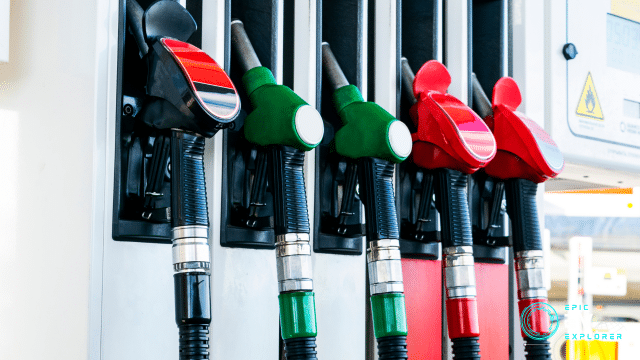Yes, I know it seems a bit weird writing about this on an EV blog, but I still find it interesting that so much changed in a relatively short space of time. So, maybe it’s a bit academic and I don’t want to re-open the debate, but here are some thoughts on the timeline of what happened.
For many years, the established belief in the UK was that diesel vehicles, compared to their petrol equivalents, were a more eco-friendly option. However, this perception has dramatically changed in recent times, with diesel now considered the more detrimental choice for the environment. So, what instigated this shift?
To begin with, it’s important to understand the key differences between petrol and diesel. Both these fuels originate from crude oil, yet they undergo distinct refining processes, leading to different combustion mechanisms. Petrol engines utilise a spark plug to ignite the fuel, while diesel engines employ compression. Diesel is a denser fuel with a higher energy content than petrol, which makes diesel vehicles more fuel-efficient. Consequently, they emit less CO2, a principal greenhouse gas, hence the earlier inclination towards diesel.
However, the perception altered when research started to unveil the negative aspects of diesel: nitrogen oxides (NOx) and particulates. Diesel engines significantly contribute to these pollutants, which can adversely affect human health, leading to ailments such as asthma, lung cancer, and cardiovascular disorders. The 2015 ‘Dieselgate’ scandal, where Volkswagen confessed to manipulating emissions tests, highlighted this issue.
In 2017, the UK government declared their intention to prohibit the sale of new diesel and petrol vehicles from 2040, marking a considerable shift in their position, and recognising diesel’s negative impact on air quality. This timeline was subsequently moved up to 2035, and then to 2030, underscoring the severity of the issue.
A further significant development was the establishment of Clean Air Zones (CAZs) in various cities, including London’s Ultra-Low Emission Zone (ULEZ), where drivers of older, more polluting vehicles, particularly diesels, are required to pay a fee. This strategy, aimed at discouraging the use of such vehicles, has been a stark illustration of the government’s shift away from diesel.
The change in the UK’s stance was also driven by advancing scientific knowledge and technology. Hybrid and electric vehicles (EVs) have emerged as a cleaner, more sustainable solution. The UK government has committed to significant investment in EV infrastructure, further reinforcing the transition away from fossil fuels.
So, what precipitated this change in perspective? Despite diesel cars emitting less CO2 than petrol, the elevated levels of NOx and particulates they generate negate this advantage, particularly considering the direct harm they inflict on human health. This factor, along with the emergence of cleaner alternatives, has prompted a radical shift in official policy.
The tale of diesel versus petrol in the UK serves as a warning about how initial impressions can be deceptive and underlines the necessity for thorough evidence when formulating environmental policies. It also emphasises the importance of adaptability in policymaking as new information and technologies arise. Today, the UK is navigating towards a cleaner, greener transport future with relatively decisive intent, although there’s plenty of disagreement on the pace. Diesel, once viewed as the hero of eco-friendly driving, is now decidedly left behind.

